Homesteading: Wishful Thinking or Possibility?
Homesteading has been around since the Homestead Act of 1862 when anyone could apply and receive 160 acres of land. All you had to do was live on the land and promise to improve it for five years. This was a great way to entice folks to settle the west. Some made it work. Some did not.
Today the term Homestead applies to any situation where a town or municipality is offering an incentive package for people to move there. The incentives could be a free lot in a urban area, and maybe a tax waiver for a number of years in exchange for your promise to build a nice house of a certain size and live there.
These towns are thinking long-term, hoping for increased tax revenue and a reinvigorated town years down the road. You might find, however, that jobs are scarce or that it’s a difficult environment to live in. That’s why no one wants to live there. But, if you have a vision for a new business, or it’s near family, it might just be an advantage you can jump on. Here’s a good blog to visit for more information. This website lists towns where these incentive packages can be found.
Appalachian Homesteading
The Appalachian region covers a wide swath of the Eastern US. It envelopes parts of Alabama, Georgia, Kentucky, Maryland, Mississippi, New York, North Carolina, Ohio, Pennsylvania, South Carolina, Tennessee, Virginia, and all of West Virginia.
Twenty-five million people live here, many in secluded back woods areas looking like poverty woven into the very fabric of society (writes Jason Strange in the Lexington Herald). In reality, Jason says, you’ll see people living off the land with a large productive garden, raising chickens, some livestock, and “a freezer packed with venison.”
Exhausted city folks may dream of a quite, peaceful life of “living off-the-land” with few of the cares they now have in rural America. In reality, homesteading requires a great deal of skill and knowledge to make it work as a lifestyle.
Raising most of your own food and providing your basic needs can have a deep spiritual reward, but it’s hard work. You’ll still need to produce income to get today’s basics that you can’t provide from the land like eyeglasses, vaccines, and chainsaws. But, you might be able to obtain cheap land and build the kind of house you want to achieve your goal of being debt-free.
FoxFire: The ultimate homesteading guide to living off the land
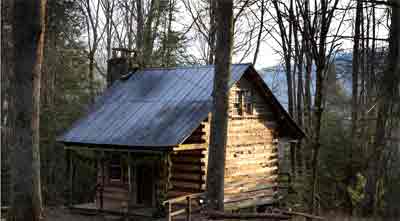
FoxFire began as a book written in 1966 about homesteading in the Appalachian mountains. It became a surprise bestseller and was followed by an entire series of FoxFire books that brought Appalachia’s philosophy of simple living to hundreds of thousands of readers.
Whether you wanted to hunt game, bake the old-fashioned way, or learn the art of successful moonshining, The Foxfire Museum and Heritage Center has a contact who can teach you how with clear, step-by-step instructions.
The Appalachian Village ia made up of over 20 historic log structures, each home to various artifacts representative of life in the mountains. Discover all that the spacious outdoor museum offers, including a half-mile walking trail. See cabin at top of page.
Visit the Foxfire Museum! Situated on eight acres of mountainside next to Black Rock Mountain State Park. Open Monday thru Saturday.
You’ll enjoy reading the FoxFire books
In the late 1960s, Eliot Wigginton and his students created the magazine “Foxfire” in an effort to record and preserve the traditional folk culture of the Southern Appalachians. This is the original book compilation of Foxfire material which introduces Aunt Arie and her contemporaries and includes log cabin building, hog dressing, snake lore, mountain crafts and food, and “other affairs of plain living.”‘
These books are collectors’ treasures.
The detailed descriptions of how they lived, cooked, built their homes, made their own tools just gives one the courage to believe it still can be done today.
I spent many an hour learning and dreaming about living off the land the way early settlers did. Each book is a fascinating read.
You can find this collectors series on Amazon, Etsy, and EBay.
Is Homesteading an Option for You?

You may need to protect livestock from wolves, mountain lions, and bears. Oh my!
After reading and dreaming for years about living off the land, I packed my bags and set out. I quickly realized, the hard way, that I did not have the skills or the willingness to do the hard work and live the actual lifestyle. Luckily I was young enough to change course and find a path that worked for me. But will it work for you?
One should never let my experience deter you from pursuing your own path. But you really need to think clearly about your skill level and current situation. Have you ever hunted successfully? I had the guns and equipment and still am a avid camper. Even went pheasant hunting once but never stalked a deer, let alone dressed one out. I live in an area where hunting is a lifestyle but City Market is as close to actual hunting as I’m likely to get. I still have the weaponry and tools so I can try to console myself that if society crumbles and City Market stops supplying food I could go hunting. But in reality, that probably not going to happen.
This year (2020) we have experience shortages at the grocery store. The pandemic and political situation has raised the possibility of a breakdown of society to the “could happen” level.
Homestead Rescue TV show
Discovery Go has a TV show called Homestead Rescue. It show many folks who are failing miserably at homesteading. It’s not easy and the learning curve is steep. There is no shortage of families to feature on this show. The show intro says, “In the last decade, two million Americans have attempted to leave behind civilization in favor of life off-the-grid, but most have failed.”
If you are considering homesteading I encourage you to watch a few episodes of the show to see the reality of the lifestyle. Some episodes are available for free on YouTube®. Here’s season one, episode one:
Finding Your Comfort Zone
Everyone has their lifestyle comfort zone.
You might be a city dweller. The thought of being in the woods is uncomfortable to you. Do you feel uneasy if you’re beyond cell range?
You might be a country person like me. The thought of driving city highways makes me sick. Not being able to see nature causes me anxiety.
Or you might be somewhere in-between, or even comfortable being alone in the Alaskan wilderness.
You need to find the space that’s comfortable for you to live in. Go as far away the city as you can and still feel calm.
Don’t feel bad if living totally off the land is outside of your grasp. Do what you can to lessen your ecological footprint.
Same is true for tiny living. Go as small as you can and don’t feel bad that you can’t live in 100 sq./ft. like some can.
For more information on off-grid living, visit these pages:
Here’s another good website for homesteading information.


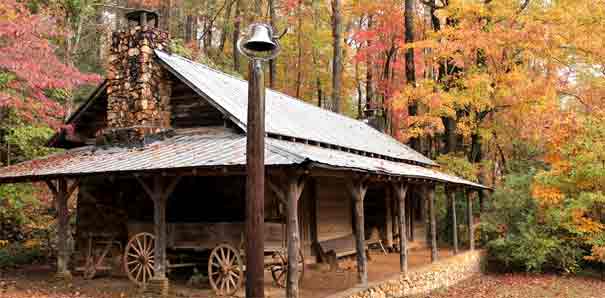

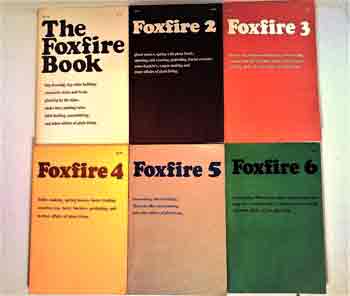
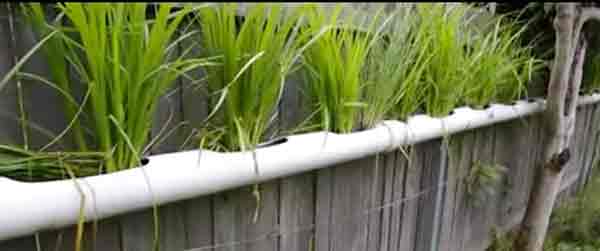
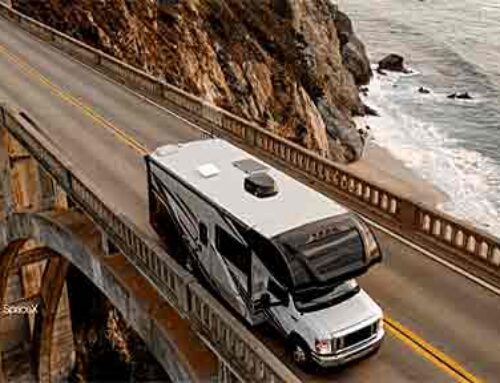

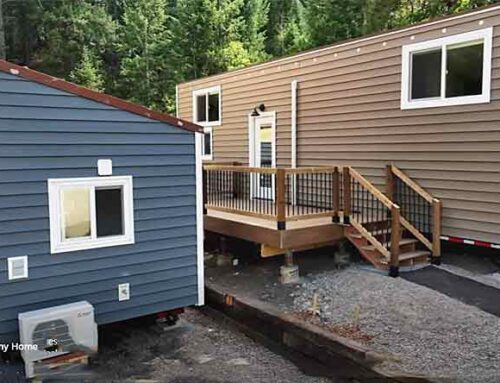
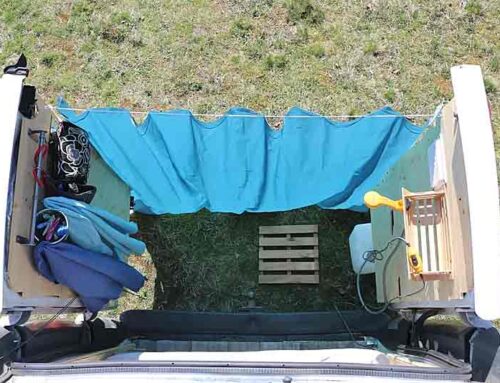
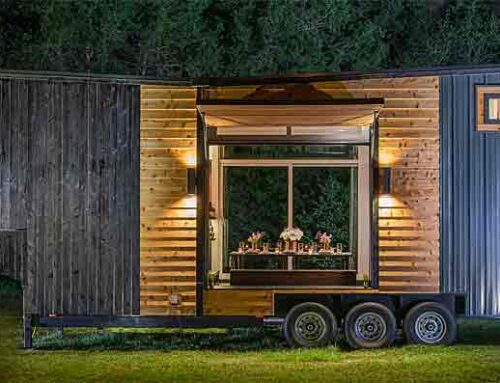
Leave A Comment